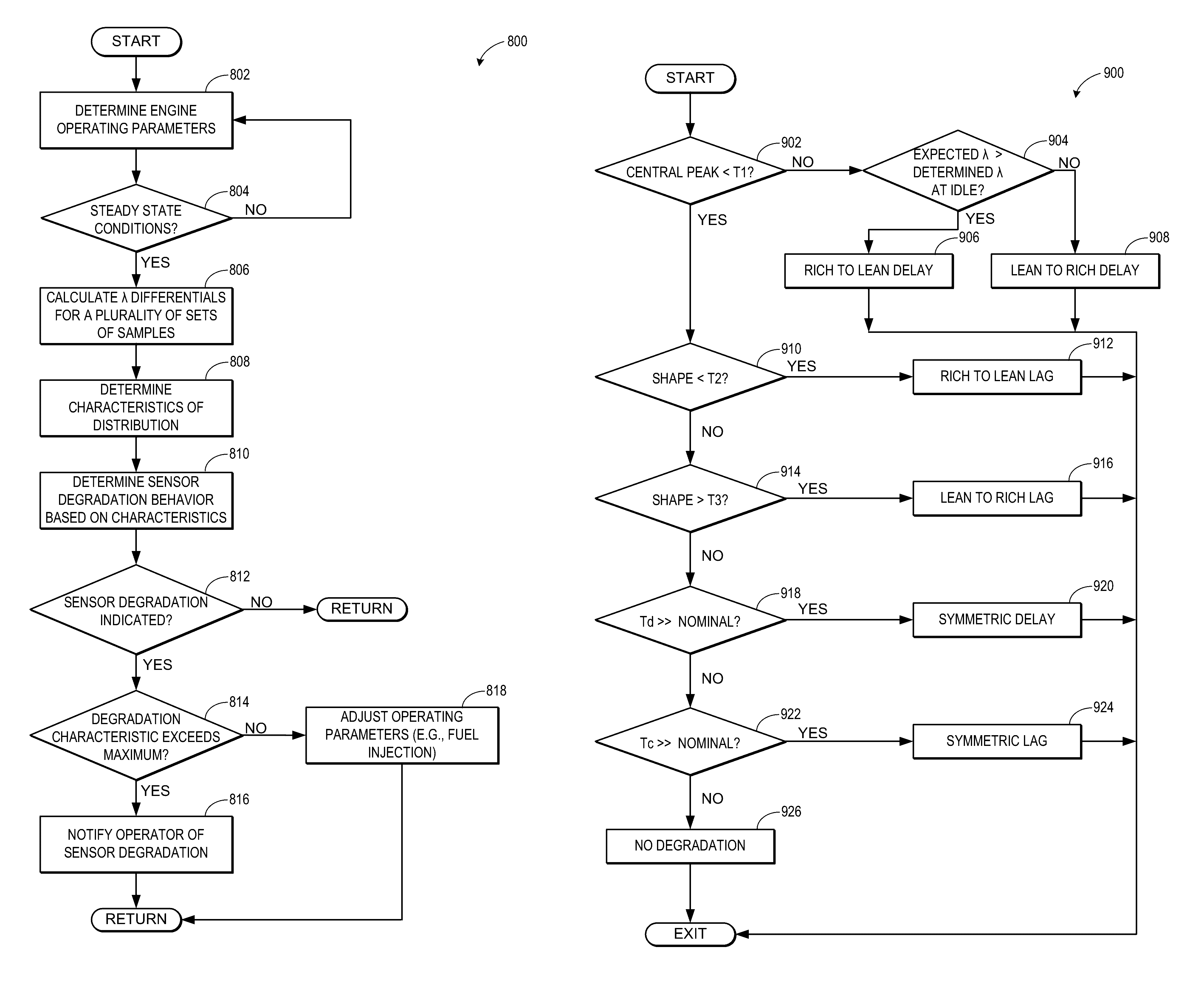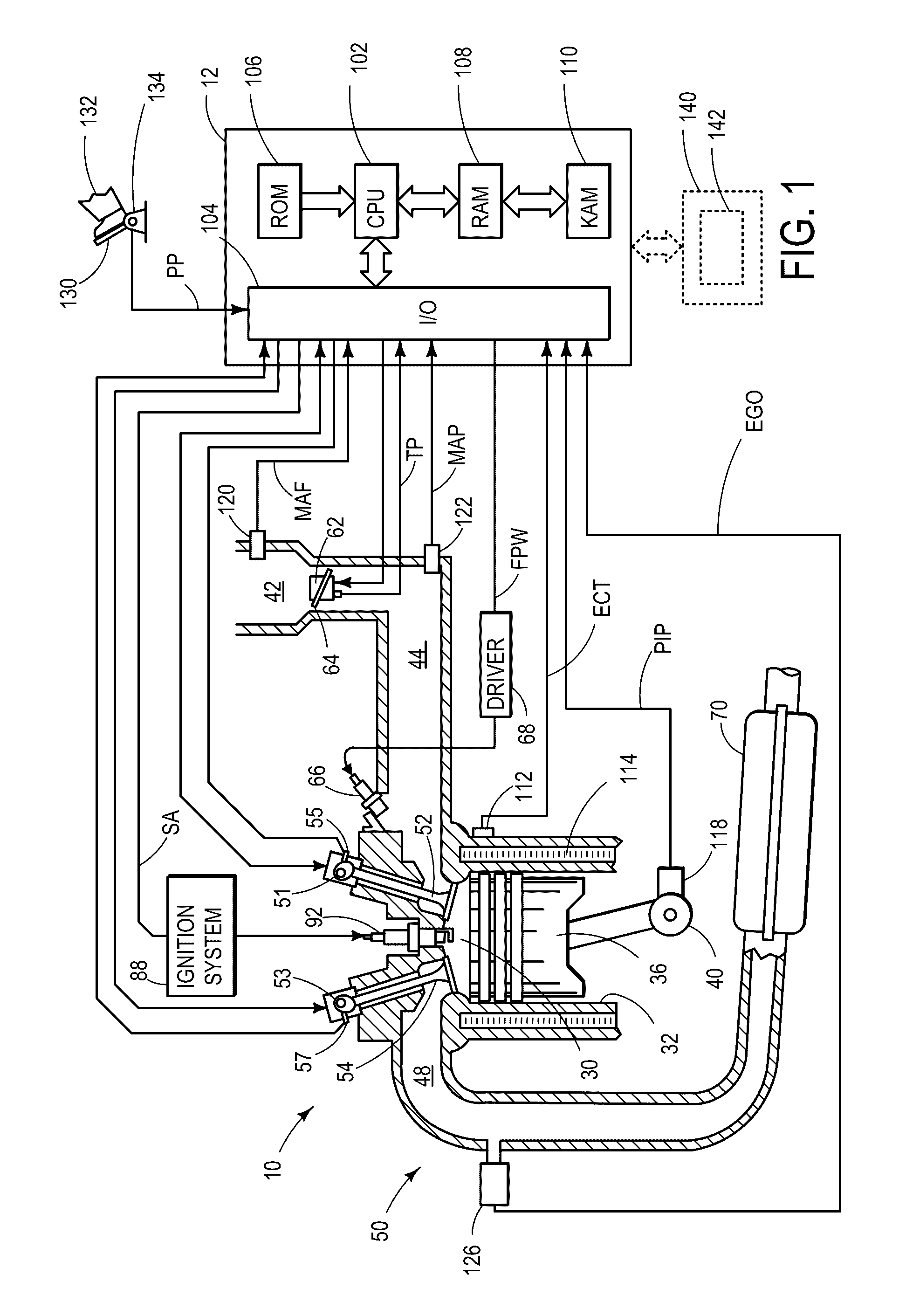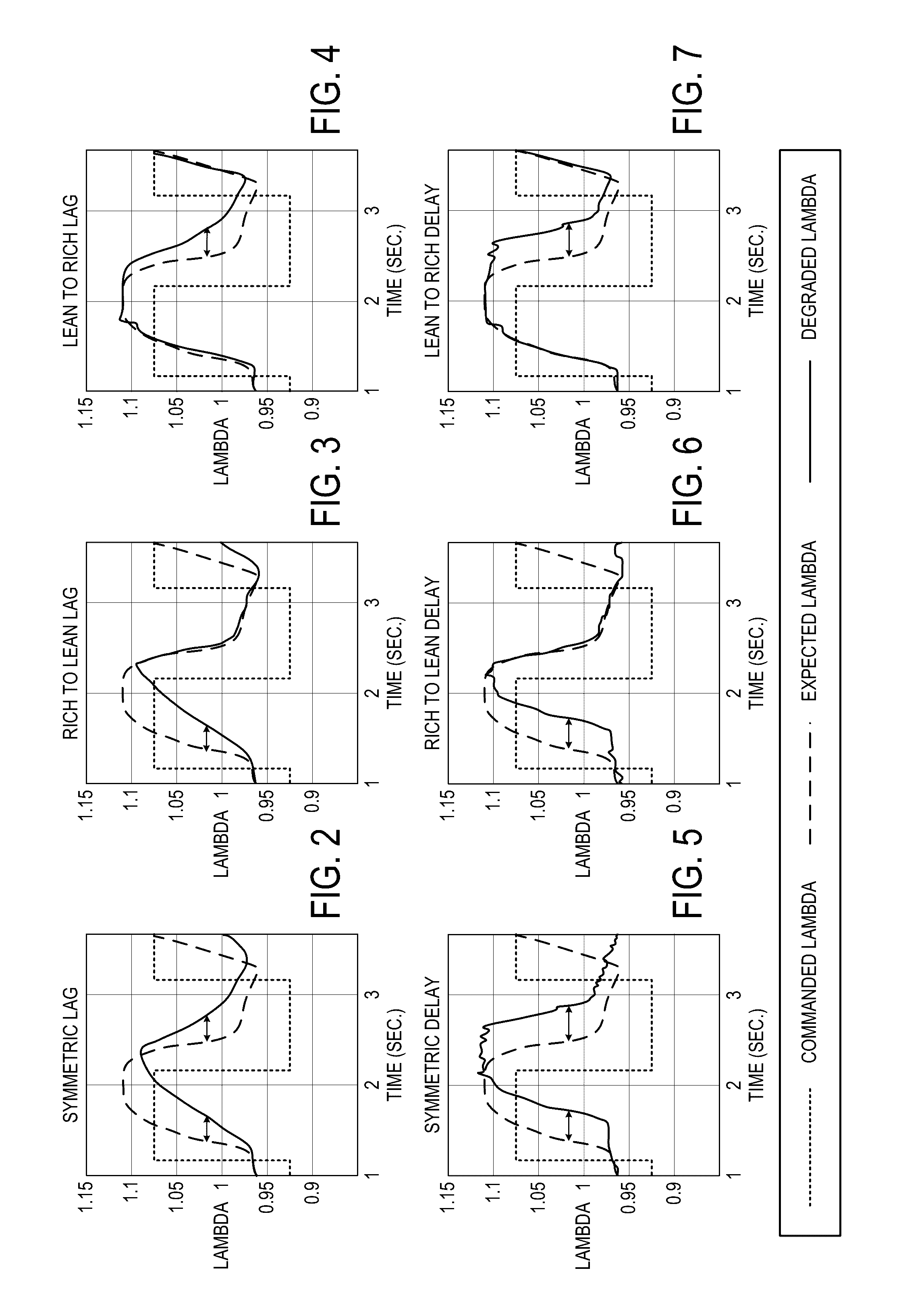Non-intrusive exhaust gas sensor monitoring
a technology of exhaust gas sensor and non-intrusive, applied in the direction of electric control, machines/engines, instruments, etc., can solve the problems of reducing the likelihood of engine control based on readings, reducing vehicle drivability, and restricting excursions, so as to reduce the likelihood of engine control, increase emissions, and reduce vehicle drivability
- Summary
- Abstract
- Description
- Claims
- Application Information
AI Technical Summary
Benefits of technology
Problems solved by technology
Method used
Image
Examples
Embodiment Construction
[0024]The following description relates to an approach for determining degradation of an exhaust gas sensor. More particularly, the systems and methods described below may be implemented to determine exhaust gas sensor degradation based on recognition of any one of six discrete types of behavior associated with exhaust gas sensor degradation.
[0025]FIG. 1 is a schematic diagram showing one cylinder of multi-cylinder engine 10, which may be included in a propulsion system of a vehicle in which an exhaust gas sensor 126 may be utilized to determine an air fuel ratio of exhaust gas produce by engine 10. The air fuel ratio (along with other operating parameters) may be used for feedback control of engine 10 in various modes of operation. Engine 10 may be controlled at least partially by a control system including controller 12 and by input from a vehicle operator 132 via an input device 130. In this example, input device 130 includes an accelerator pedal and a pedal position sensor 134 f...
PUM
 Login to View More
Login to View More Abstract
Description
Claims
Application Information
 Login to View More
Login to View More - R&D
- Intellectual Property
- Life Sciences
- Materials
- Tech Scout
- Unparalleled Data Quality
- Higher Quality Content
- 60% Fewer Hallucinations
Browse by: Latest US Patents, China's latest patents, Technical Efficacy Thesaurus, Application Domain, Technology Topic, Popular Technical Reports.
© 2025 PatSnap. All rights reserved.Legal|Privacy policy|Modern Slavery Act Transparency Statement|Sitemap|About US| Contact US: help@patsnap.com



